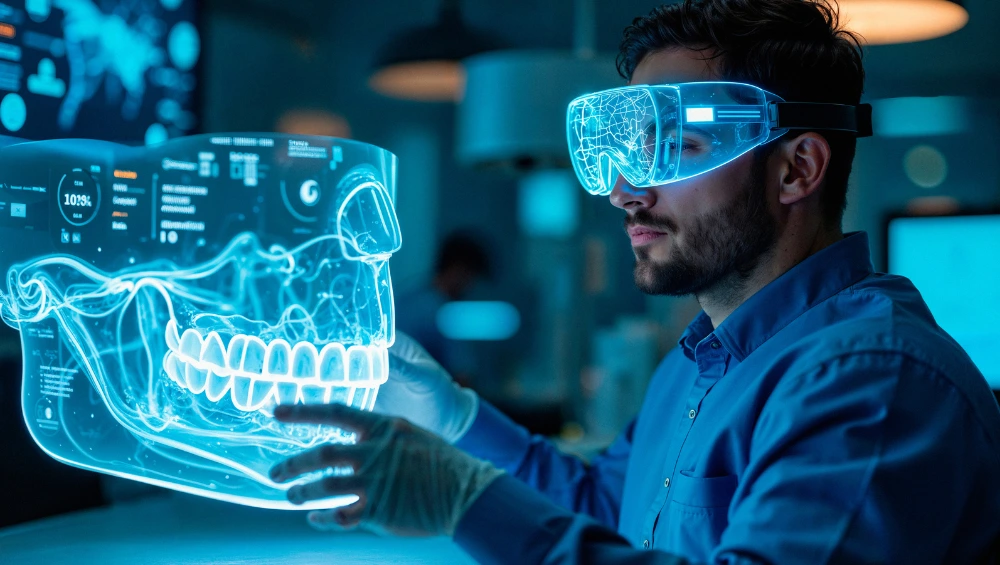Ever wondered how dentists spot problems so fast? Or how do they know exactly where to place an implant? The truth is, even the best dentists can miss small details. But here’s where Nerovet AI dentistry changes the game. With smart tools, deep learning, and machine precision, it makes dentistry becomes more accurate and more personal.
In fact, studies show that AI can cut diagnostic errors in radiology by almost 30%. And dentistry is no different. From reading X-rays to planning implants, this tool saves time, reduces errors, and helps both patients and dentists. So, let’s dive in.
What Is Nerovet AI Dentistry and How Does It Work?
Nerovet AI Dentistry is an advanced dental platform. It uses AI-powered X-ray analysis, photos, and patient records AI platforms to find problems early. Think of it like a second pair of eyes for dental surgeons and oral radiologists.
It works by scanning bone density, spotting cavities, and checking risks. Then it makes a treatment plan. For example, dental implant specialists can use their implant planning software and mesh-guided implant software to see exactly where an implant should go. Dental technologists and dental data scientists help design these tools.
And it’s not just about teeth. The system can also assess risks, using a treatment risk assessment tool. That means safer surgery and fewer surprises. Even leading AI dental researchers like Dr. Mina Ghorbani share updates on YouTube about how this works in real life.
How Does It Improve Diagnostic Accuracy and Planning?
Accuracy is everything in dentistry. Miss one detail, and a patient may suffer. That’s why the Nerovet AI dentistry tool uses bone density analysis AI and early cavity detection AI. It gives dentists real-time feedback, reducing human error.
For oral radiologists in radiology imaging facilities, this means clearer reports. And for implant manufacturers like Straumann and Nobel Biocare, it means better implant success rates. A personalized plan is built for each patient, not a one-size-fits-all.
Dentists can also test these features in dental schools like Harvard or King’s. Clinical trial coordinators confirm results through validation studies. This way, patients get precision dentistry tools and AI dental treatment planning that’s both safer and faster.
Can Nerovet AI Dentistry Improve Patient Experience and Efficiency?
The answer? Yes. And big time. Patients want less waiting, fewer errors, and smoother visits. With dental AI workflow tools, Nerovet AI dentistry speeds up everything. Appointments are easier with automated appointment scheduling.
Dental hygienists, dental surgeons, and dental implant centers report better patient smiles—literally. People get personalized dentistry and cost-effective dental care because the tool saves time and money.
Plus, dental clinics and tele-dentistry hubs can use remote diagnostics tools. That means faster checkups without always being in the chair. And dentists love it because they get more efficiency in workflows, fewer repeat visits, and happier patients.
What Are the Challenges and Ethical Considerations?
Of course, nothing is perfect. Data privacy in dental AI is a huge topic. Where’s your dental data stored? And who controls it? AI ethicists and regulators like the FDA or the EU Medical Device Regulation (MDR) are still setting rules.
Another concern is over-reliance on machines. What if the AI misses something? Dentists must balance human skill with machine learning in radiology. Plus, there are clinical validation requirements to prove safety. Even malpractice insurance implications are debated in dental tech expos and ADA Annual Meetings.
And patients? They must give clear patient consent and ethics approval. Because without trust, adoption fails.
What’s Next for Nerovet AI Dentistry and the Industry?
The future looks bold. Experts predict AI-driven oral health predictors and real-time surgical AI assistance. Imagine a voice assistant for dentists or AI-enabled dental robots helping in surgery.
Dental AI startups and healthtech incubators are working on augmented reality surgical AI, cloud-based dental AI, and even wearable integrations. Clinics that adopt early will lead the way. The International Dental Show (IDS) and CES medtech segments are already buzzing about these tools.
And dental schools are launching pilot programs and training modules. So the next generation of dentists won’t just hold drills. They’ll also master AI-driven patient care.
Conclusion
At the end of the day, Nerovet AI dentistry is more than just a tool. It’s a partner for dentists and a comfort for patients. With better accuracy, faster planning, and a smoother patient journey, it’s setting new standards in dental care.
But like all tech, it needs rules, balance, and training. If adopted wisely, it could shape the future of dentistry. So, whether you’re a dentist or a patient, keep an eye out—because the AI smile revolution has already begun.








